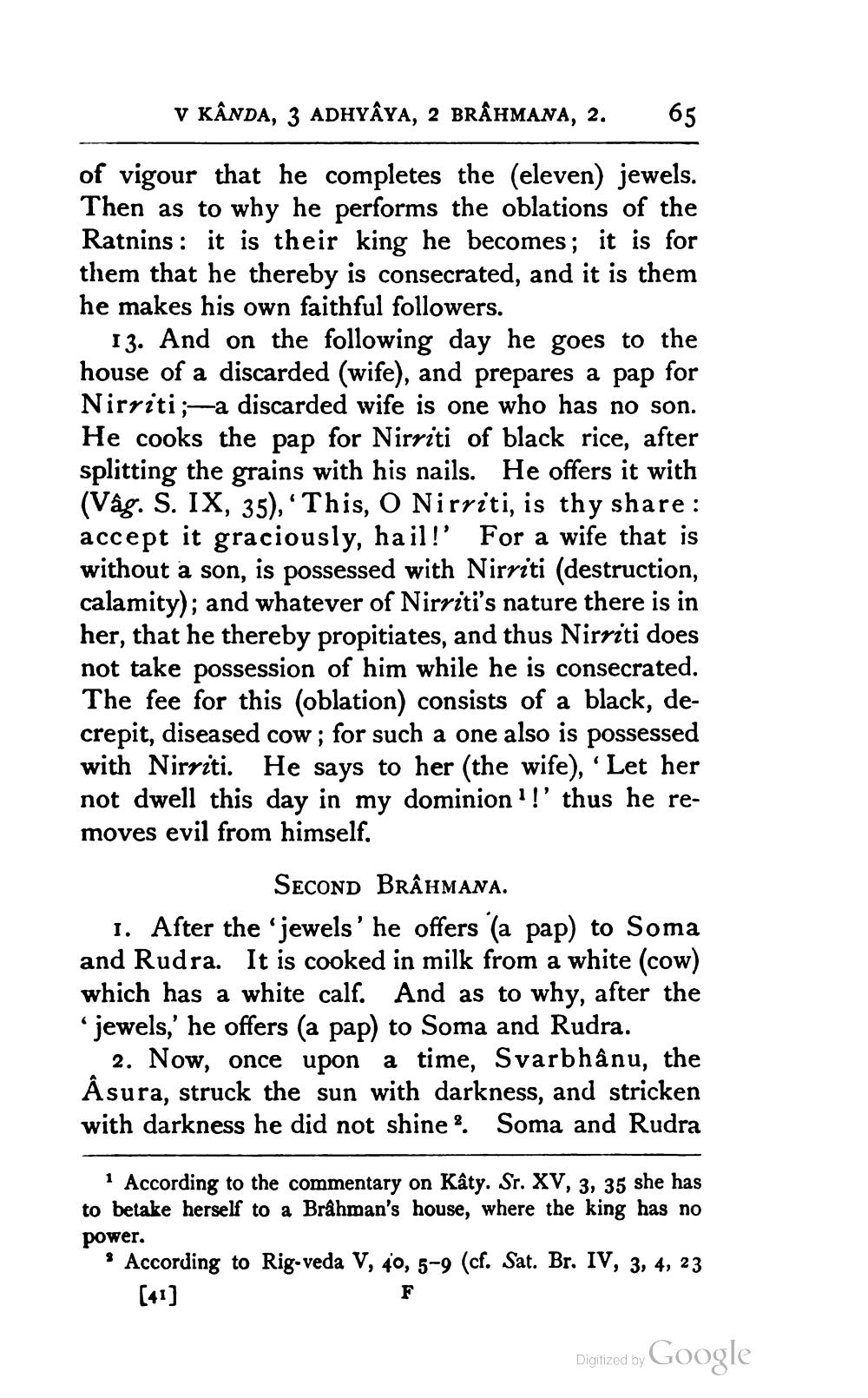________________
V KANDA, 3 ADHYÂYA, 2 BRAHMANA, 2.
65
of vigour that he completes the (eleven) jewels. Then as to why he performs the oblations of the Ratnins it is their king he becomes; it is for them that he thereby is consecrated, and it is them he makes his own faithful followers.
13. And on the following day he goes to the house of a discarded (wife), and prepares a pap for Nirviti; a discarded wife is one who has no son. He cooks the pap for Nirviti of black rice, after splitting the grains with his nails. He offers it with (Vâg. S. IX, 35), 'This, O Nirriti, is thy share: accept it graciously, hail!' For a wife that is without a son, is possessed with Nirviti (destruction, calamity); and whatever of Nirviti's nature there is in her, that he thereby propitiates, and thus Nirriti does not take possession of him while he is consecrated. The fee for this (oblation) consists of a black, decrepit, diseased cow; for such a one also is possessed with Nirviti. He says to her (the wife), 'Let her not dwell this day in my dominion'!' thus he removes evil from himself.
SECOND BRAHMANA.
1. After the 'jewels' he offers (a pap) to Soma and Rudra. It is cooked in milk from a white (cow) which has a white calf. And as to why, after the 'jewels,' he offers (a pap) to Soma and Rudra.
2. Now, once upon a time, Svarbhânu, the Âsura, struck the sun with darkness, and stricken with darkness he did not shine. Soma and Rudra
1 According to the commentary on Kâty. Sr. XV, 3, 35 she has to betake herself to a Brahman's house, where the king has no power.
According to Rig-veda V, 40, 5-9 (cf. Sat. Br. IV, 3, 4, 23
[41]
F
Digitized by
Google




